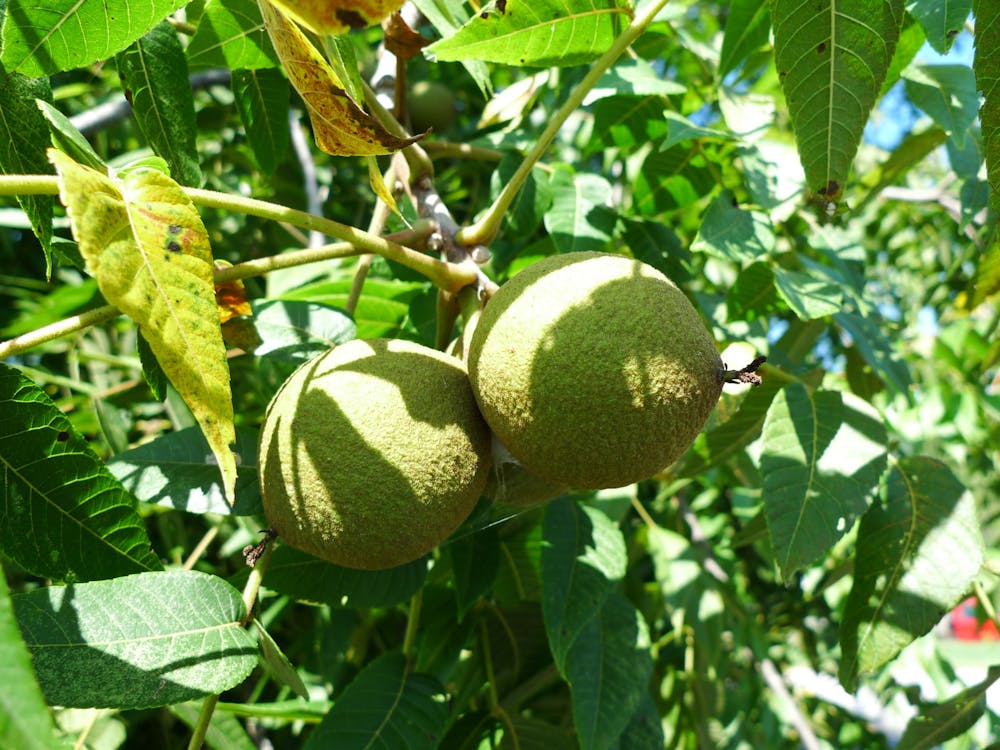By Mike Sherr
Editor-in-Chief
The black walnut tree (Juglans nigra) is a hardwood tree native to North America. Revered for its distinctive delectable nuts, the black walnut tree holds a special place in both ecological and culinary landscapes.
One of the most striking features of the black walnut tree is its tall stature, with mature specimens often reaching heights of 70 to 100 feet. Its compound leaves, composed of numerous leaflets, create a lush, dense canopy that provides ample shade. The bark of the black walnut tree is deeply furrowed, adding to its distinctive appearance.
The black walnut tree produces an abundance of nuts, encased in a thick, green, hard shell that is notoriously difficult to crack. Rich in essential fatty acids, protein and antioxidants, black walnuts offer many nutritional benefits.
Harvesting black walnuts is a labor-intensive task due to the tough shell. However, the reward is well worth the effort for those who appreciate the unique taste. Once extracted, black walnuts can be used in a variety of dishes, adding a distinctive flavor to both sweet and savory recipes.
In baking, black walnuts are perfect for cookies, brownies and cakes. The nutty, earthy flavor complements the sweetness of baked goods, creating a memorable and satisfying treat. Black walnut pie, a twist on pecan pie, showcases the distinct taste of these nuts.
Beyond desserts, black walnuts can elevate savory dishes as well. Chopped or ground black walnuts add depth to salads, pasta dishes and vegetable sides. The rich, bold flavor pairs well with cheeses, making it an excellent addition to cheese boards or salads with blue cheese or goat cheese.
Apart from their culinary uses, black walnut trees have a historical significance as well. The wood is highly prized for its durability and aesthetic appeal, often used in fine furniture and woodworking. However, the black walnut tree is not without controversy, as the release of juglone, a natural chemical produced by the tree, can inhibit the growth of certain plants in its vicinity.
From its towering presence in the forest to the delectable nuts it produces, the black walnut tree has a lasting impact on both ecosystems and kitchens, making it a cherished resource for those who appreciate its many resources.




